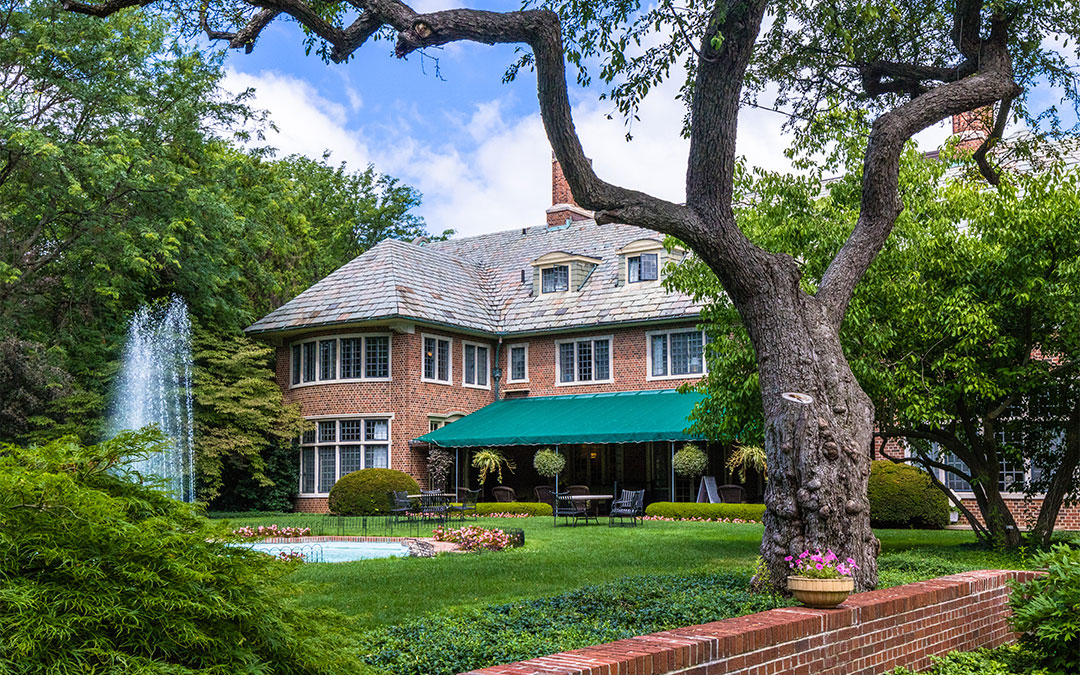Applewood, at the end of East Kearsley Street, sits on what remains of Charles Stewart Mott’s sixty-four-acre estate in the City of Flint.
At one time the property stretched from Kearsley Street to Court Street and was a working farm as well as the home of Flint’s wealthiest citizen and biggest supporter for nearly seventy years.
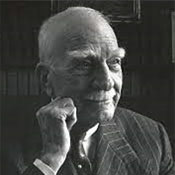 Mott, his family, and the family business came to Flint at the invitation of Billy Durant to build axles for the Buick Motor Car Company. In 1916 construction began on the house which was designed by Mr. Mott’s brother-in-law Herbert Davis.
Mott, his family, and the family business came to Flint at the invitation of Billy Durant to build axles for the Buick Motor Car Company. In 1916 construction began on the house which was designed by Mr. Mott’s brother-in-law Herbert Davis.
The house was built to function as a home as well as a self-supporting farm, providing food for the family table from the chickens and cows raised on the estate and with the produce grown in the vegetable garden.
Mr. Mott raised six children at Applewood and it continued to be the family home until his widow, Ruth Rawlings Mott died in 1999.
Over the years the estate changed, in 1949 the farm ceased operations and in the early 1950s Mr. and Mrs. Mott donated thirty-two acres on the south side of the estate for the new home of Flint Junior College. Flint Junior College underwent a few name changes and is today Charles Stewart Mott Community College or in the short form, Mott Community College.
Ruth Mott, Mr. Mott’s widow, planned for Applewood to become a memorial to her husband and undertook extensive renovation of the estate. In 1979 Applewood was added to the National Register of Historic Places.
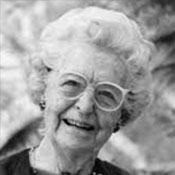 The gardens, the barn, and the greenhouse were updated, and new plantings introduced. The apple trees and the specimen trees which dot the landscape were given special care. Many of the trees on the estate are now over a century old, one or two even predate Mr. Mott’s tenure.
The gardens, the barn, and the greenhouse were updated, and new plantings introduced. The apple trees and the specimen trees which dot the landscape were given special care. Many of the trees on the estate are now over a century old, one or two even predate Mr. Mott’s tenure.
The house underwent a similar overhaul, windows were repaired, the heating updated, the slate roof was cleaned, and the interior repainted and renovated, when possible, to its original appearance.
The Ruth Mott Foundation operates and cares for the house and estate today. Applewood is shared with the public from May to October with programs for children and tours of the house. The gardens serve as an inspiration to those who have visions of what their own garden could be.
Mr. Mott was involved in a large part of the life of Flint in the twentieth century and Applewood gives the visitor a glimpse of that past and a few lessons in Flint history.
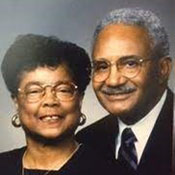 Avery Aldridge came to Flint in 1946 to reconnect with a young lady he had met back in Arkansas before entering the U.S. Army.
Avery Aldridge came to Flint in 1946 to reconnect with a young lady he had met back in Arkansas before entering the U.S. Army.
Mildred Light’s family had moved to Flint for work opportunities. Avery and Mildred married January 2nd, 1949, at Antioch Baptist Church and started on a journey that would change their new hometown of Flint, Michigan.
At Antioch Baptist Church, Aldridge became the Sunday School Superintendent and later was ordained by Dr. L. W. Pryor.
In December 1956 Dr. Pryor and several other Baptist Ministers started a new congregation in a house at Horton & Foss Avenue and Reverend Aldridge and his wife became two of the four original members of the Foss Avenue Baptist Church. By 1959 the church had grown to 450 members and had a new $45,000 home at 1159 East Foss Avenue.
An education wing was added to the church with a fellowship area, 23 classrooms, and a kitchen dedicated in March 1964. The church added another addition in 1969 adding three more classrooms, a chapel, and secretary’s office to serve a growing congregation of 1,500.
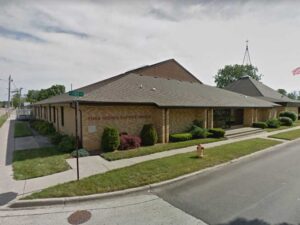 Foss Avenue also had the first family life center of any Black church in Flint. The Avery Aldridge Family Life Center offered programs for many, including young people, through recreational activities and educational programs.
Foss Avenue also had the first family life center of any Black church in Flint. The Avery Aldridge Family Life Center offered programs for many, including young people, through recreational activities and educational programs.
During the civil unrest in 1967 Reverend Aldridge thought the churches needed to reach out and include ‘the cries of the unheard wanting to be heard.’
More needed to be done to actively work in the community to bring about change.
When the Flint City Commission refused to consider an open housing ordinance with penalties for non-compliance, Rev. Aldridge was one of many holding positions on city committees who stated they would resign if the City Commission rejected Mayor Floyd McCree’s bill.
Editor’s note: Floyd McCree was the first Black Mayor of a major American city since Reconstruction.
Flint was one of many cities across the nation that allowed and encouraged realtors steering Black and Whites to segregated neighborhoods when looking for a home. McCree and others sought to make it illegal not to allow a buyer or renter to view all the available properties.
Reverend Aldridge regularly appeared on the religion pages of the local paper, but as the 1960s ended he started to make the news as well for addressing the issue of race. He was a member of the Flint Human Relations Commission, formed to lessen racial tension and resolve racial discrimination.
When George Wallace, the segregationist former governor of Alabama, visited Flint during his 1968 presidential campaign, Aldridge and others supported Mayor McCree for not offering Wallace the key to the city.
A committee was set up in March 1969 to establish an urban coalition for solving community problems. The group included Edgar Holt of the NAACP, Arthur Summerfield of Summerfield Chevrolet and former U.S. Postmaster, Harding Mott of the C.S. Mott Foundation, C. Frederick Robinson a noted civil rights attorney, and a number of politicians and members of the clergy including Reverend Aldridge.
In March 1969, thirty-two Black pastors from six denominations banded together forming the Concerned Pastors for Social Action (CPSA). Reverend Aldridge was elected the first president, a post he held until 1999. They later started the CPSA Courier, a weekly paper devoted to the news of local Black churches and the issues of racial injustice and our sister publication.
In 1970 the CPSA wrote a letter to the editor of the Flint Journal on police brutality and unequal treatment, Reverend Aldridge and Reverend Ronald Burke signed the letter on behalf of the group.
The CPSA was also working toward the hiring of more Black police officers, coordinating welfare activities among churches, improved counseling in high schools for Black students and requiring the police to inform people of their rights when arrested.
The Miranda warning was to have been a standard practice following the 1966 Supreme Court decision Miranda v. Arizona.
The group also hoped to open a Black owned supermarket in the city. The pastors would raise the money and use the proceeds from the supermarket to train members of community and establish other businesses.
In 1970 CPSA advocated for ending the Vietnam War and handed out peace rally leaflets with members of the New Majority to End the War, the NAACP, and the United Teachers of Flint. The CPSA felt the $80 billion spent on the war could better be invested in solving poverty in the United States.
Reverend Aldridge was one of the prime movers in the drive to rename Detroit Street after Dr. Martin Luther King. The Flint City Council approved the name change in 1987. Reverend Aldridge was also instrumental in the opening of Foss Avenue Federal Credit Union and the Foss Avenue Free Clothing Center, bringing services to a community that frequently was ignored. In honor of his work on the Flint Housing Commission Aldridge Place Townhouses (currently undergoing renovations) was named for him.
Mrs. Aldridge was also active in the community. She received an associate degree from Flint Junior College and went on to take a bachelor’s degree in early elementary education at the University of Michigan-Flint.
After working as a substitute teacher, she taught at Dewey and Garfield Elementary Schools. She returned to school and earned a Master’s Degree in Guidance and Counseling from Eastern Michigan University.
She then worked at Holmes and Emerson Schools as a counselor. She was then principal of Doyle-Ryder Elementary until she was forced to retire due to ill health.
Mrs. Aldridge then became even more involved in the work of Foss Avenue Baptist, becoming the administrative assistant. When Foss Avenue moved to the larger church, the older building was converted into classrooms and became the Mildred Light Aldridge Christian Education Center.
The Church also opened and operated the Foss Avenue Childcare and Development Center in the former Jefferson School building which was operated by Mrs. Aldridge.
The building also housed the Foss Avenue Christian School, educating students up to the eighth grade. The school closed in 1997 and was later replaced by Northridge Academy Charter School.
The legacy of Reverend and Mrs. Aldridge lives on, in Foss Avenue Baptist Church and the Avery and Mildred Aldridge Scholarship Fund which was established on his retirement in 1999 with the Foundation for Mott Community College.

